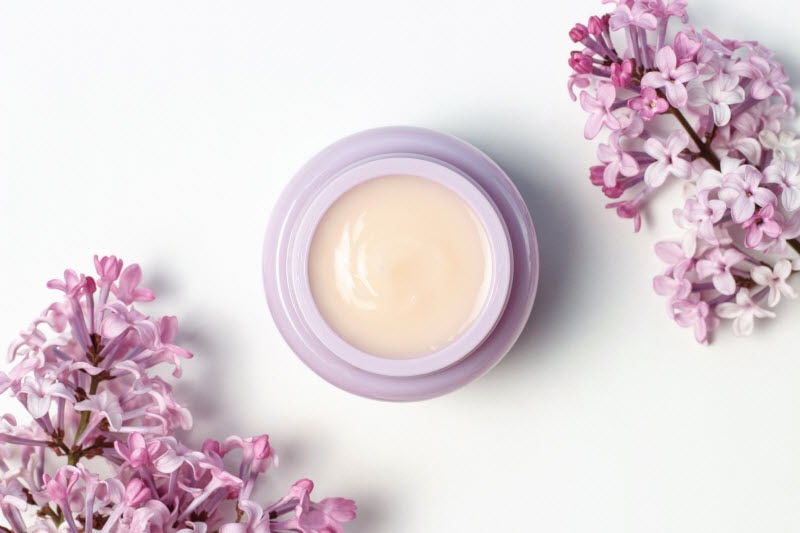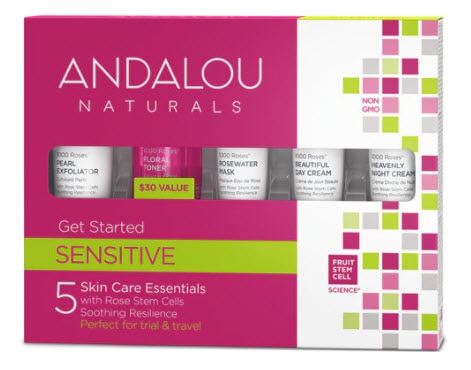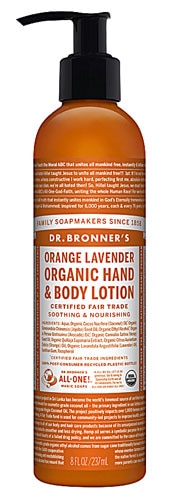Flowers seem to cast an inexplicable ‘happy spell’ on most people. In fact,
one behavioral study revealed that the simple presence of flowers vastly improved the emotional health of participants from all backgrounds. 'Flower power’ doesn’t stop with boosting the happiness meter, either. From nature’s little beauties, a spring of vitamins, minerals and antioxidants flow, carrying with it a wealth of natural skin-rejuvenating benefits.

Why you should add more flowers to your beauty routine
Beyond adding natural color and fragrance to skincare products, flowers are prized for their potent yet gentle abilities to:
- Cleanse and purify
- Soothe and moisturize
- Repair free radical damage and reverse the signs of aging
11 Best Flowers for Skin Care
Ready to experience the power of flowers Let’s take a look at some potent blooms that you can add to your routine to help purify, heal and restore your skin to a healthier glow.
1. Rose
The classic ‘flower of love’ shares an infatuation with your skin! Rose is intensely hydrating and with its anti-inflammatory and cell-healing properties, it’s an ideal ingredient for both dry and aging skin.
Rose soothes, moisturizes and helps to minimize the appearance of wrinkles, scarring and stretch marks, keeping your skin looking youthful and ‘soft as a rose petal.’
2. Chamomile
With its anti-fungal, antibacterial, antiseptic and antioxidant properties, it’s no wonder
chamomile has a long history of medicinal use. And, because of its high concentration of the compound
azulene (see
The Magic of Blue Tansy Oil),
chamomile is a powerful anti-inflammatory and moisturizer that can help calm skin irritations such as acne, eczema and even acute issues such as swelling, minor cuts or abrasions.
*Avoid using chamomile topically if you have allergies to flowers from the daisy family.
3. Ylang ylang
Fruity, flowery and rich, the aroma of this flower alone is enough to unravel stress and relax the mind. Along with
enhancing mood, ylang ylang has been shown to naturally stimulate oil production in the skin and on the scalp -- which can lead to healthier cell growth. And, because it offers antibacterial and anti-inflammatory properties, ylang ylang can be used to address acne and other skin blemishes.
*You should avoid using ylang ylang if you suffer from sensitive skin as it contains allergens that have been linked to contact dermatitis and could possibly cause irritation.
4. Jasmine
This fragrant, exotic flower may look dainty, but with its high concentration of antioxidants, it packs a powerful anti-aging punch! Jasmine helps to protect the skin from free radical damage – which directly helps to diminish the look of fine lines and age spots. Plus, with its ultra calming and hydrating properties, jasmine is the go-to ingredient for nourishing dry skin.
5. Passionflower
Native to the Amazon, passion flowers are rich in vitamin C, calcium and fatty acids making them an excellent ingredient for dry, cracked and aging skin. Passionflower also contains
lycopene, a natural antioxidant compound that helps fight sun damage and soothe inflammation (including redness and flakiness).
6. Marigold
A superstar bloom, marigold is one of the most potent medicinal flowers. It’s packed with antioxidants that protect and repair skin, and it also contains anti-fungal, antibacterial and anti-inflammatory properties that can help with acne. As a cherry on top, Marigold’s healing abilities offer natural relief for a host of skin issues such as eczema, dermatitis, rosacea and even fungal infections.
*Like chamomile, avoid using marigold if you suffer from allergies to flowers in the daisy family.
7. Sunflower
The mighty
sunflower is high in antioxidants and in linoleic acid, a polyunsaturated fatty acid that helps to support healthy skin cells. Sunflower oil features a ton of skin restoration benefits including, moisturizing, smoothing, brightening, and relieving inflammation (from sunburn, puffiness – even insect bites).
8. Hibiscus
Hawaii’s national flower isn’t nicknamed the Botox plant for nothing! Packed with antioxidants and alpha hydroxy acids (AHAs), hibiscus is the flower of choice for promoting improved skin elasticity and a youthful appearance. The AHAs also act as a great natural exfoliator, speeding up cell turnover and helping to prevent breakouts. If all this isn’t enough, hibiscus is also a great naturalmoisturizer!
9. Lotus
Lotus (fittingly) follows the philosophy of
yin and yang as it helps our skin maintain ‘harmony’ by controlling the production of our oil-producing (sebaceous) glands. Along with its oil-balancing abilities, lotus contains antioxidants, and a potent concentration of vitamins A, C, and B complex. All these help contribute to calmer, healthier, happier – and more harmonious! – skin.
10. Lavender
Like chamomile,
lavender is somewhat of a celebrity when it comes to its calming and relaxing effects. But the fame shouldn’t stop there because, along with its anti-inflammatory benefits, lavender is a cell-renewal superstar, helping to heal scarring, wrinkles, stretch marks – even burns. Lavender petals can also help to lighten and clarify skin, making this flower an ideal ingredient for face creams and masks.
11. Echinacea
Not just for preventing (and shortening the duration of) colds,
echinacea can help to calm skin irritations and address acne because of its antibacterial and anti-inflammatory properties. Also, because it’s rich in tannins (natural astringent compounds), echinacea can help to shrink and tighten skin cells - making it an excellent natural toner.
How to use flowers for skin care
The easiest way to add more flowers into your skincare routine is to look for products containing active floral ingredients - such as this
Flower Essence Self Heal Skin Creme.
Another method is to mix a few drops of your favorite
flower oil into your night or
day cream.
However, be sure to add just a little bit of oil at a time, and do a small patch test first to make sure your skin doesn’t react negatively (for example, with an allergic reaction or other irritation).
†These statements have not been approved by the Food and Drug Administration. These products are not intended to diagnose, treat, cure or prevent disease.
Featured product:






